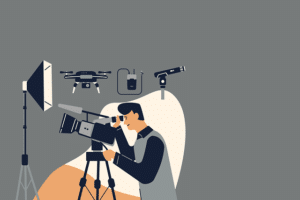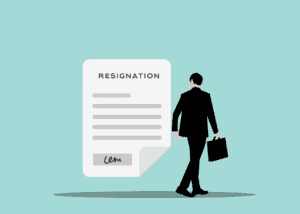I hate to be the bearer of bad news; the teller of hard truths, but sometimes being cruel can be the kindest thing. This post aims to help people who have been unemployed for a substantial period of time by highlighting some very significant reasons why your job-search isn’t going well. You’ve sent out a thick pile of CVs, trudged up the town handing them out, spent the last of your Jobseeker’s Allowance on a new suit and alas; still no call to interview. Or, if you got the interview, you didn’t get the job. The tips laid below hope to provide enlightenment and help you understand how to overcome the issues that are keeping you unemployed. The more self-aware you become, the more productive your search for a job will be.
1. You Don’t Stand out from Other Candidates
This can happen at various stages of your application process. Either your CV, covering letter, or interview just don’t make the employer particularly enthusiastic about hiring you. It’s difficult to assess your own CV or covering letter. My advice here is: ask someone you know who knows how to write well and highlight the best bits of your career/education to date. Even if you don’t know someone personally who works in recruitment, there is a wealth of information on-line that gives you tips about what to include in your application. Popular jobs sites usually have a section that includes career advice and templates for the documents you need. There is an abundance of material like this on the net which can be found easily using a search engine. If you were interviewed and didn’t get the job see tip number three.
2. Your Application is Too Generic
You churn out fifty CVs a month. You use the same one for every application. The only editing you do is to change the name of the hiring manager on the covering letter. Random, thoughtless applications like this will never book you an interview, and after applying for hundreds of jobs you will wonder what’s wrong with you/why aren’t you getting any interviews/why is life so cruel. Life isn’t cruel, you just need to stop treating job-hunting like a production line. Apply for less jobs and put more thought into each application. Another point to add here is that you may not cite your work history to its full potential. Job-seekers in general tend to write about what they did instead of what they achieved. For example, if writing about a sales assistant position, most people will just say ‘I used the till. I helped with deliveries. I merchandised.’ It’s important to translate this information into character traits, skills and qualities instead. That one fact alone can potentially change a CV from a mediocre one to one that really stands out.
3. Interview Mistakes
There are so many ways an interview can go horribly wrong. Candidates often wrongly assume that reaching interview stage pretty much means they have the job. Unfortunately, even at interview stage, you are still competing with other candidates. The standard number of candidates that reach it to interview stage is usually around ten. This means that you still have to be number one out of ten other people. This is the worst time to become lax. Below are some common interview mistakes:
- You go to the interview unprepared: An interview isn’t an informal discussion. It’s a very formal event, and should be prepared for. In order to prepare for an interview, you should know a lot about the company, what you can offer them and why you want to work for them. Make sure your answers are specific, not just vague responses like ‘it’s a very professional company’ or ‘I would love to work here because the benefits are great’. You also need to prepare for the questions themselves; questions like ‘what’s your main weakness?’ are very popular and almost always asked. These types of questions are difficult to improvise. You can think of a much better answer if you plan what you are going to say and research the best ways to respond.
- You don’t show enough interest or excitement: This is a surprising one. You would think someone being interviewed would be full of enthusiasm. However, this is an issue which crops up time and time again on any article discussing interview mistakes. This is easy enough to solve: go to bed early the night before. Be prepared. Have your clothes ready. All of these little things help to ensure that you are alert and at your best when being interviewed. No employer wants to hire a psycho zombie.
- You are already asking for special favours: Are you really telling them you need three weeks off in July for your annual trip to Ibiza? Are you really telling them you can’t work evenings during the week or weekends…or Wednesday mornings, or Thursdays 2-4? Are you seriously asking the interviewer ‘how long do I have to be working here before I can get a promotion’? Here is a velvet cushion for your feet, and a silver dish of caviar in case you get peckish during the interview. You just lost the job you never had.
- Your appearance: As much as we all like to talk about diversity, culture, cosmopolitanism, non-discrimination; the fact remains that yes, people do judge you based on your appearance. If you’re too principled to take out your nose/tongue/eyeball stud, you’re too principled to subject to the authority of your boss. Believe it or not, this is exactly the impression you make when you turn up to an interview looking like you’re about to go to a Megadeth concert. Sorry, rebel; today you have to be a doormat. You have to cover up that wonderful tattoo of a Pokemon character and pretend you’re one of those responsible, eats-muesli-with-chopped-fruit-and-almonds-for-breakfast types. Suck it up. It’s only for a day. Once you get the job, you can turn up unshaven, stinking of booze and cigarettes all you want…your funeral.
- You don’t communicate well: Responding to every question with ‘ummmmm’, ’emmmmm’, ‘I’m not quite sure, hold on, just give me a minute to think about it’ doesn’t bode well for an interviewee. Think about it like this: If you can’t express yourself confidently and fluently, it will make the interview very awkward. The purpose of an interview is essentially to find out what you’re like: you already meet the requirements for the job; it’s the person you are they’re interested in. If the interview is filled with short answers and long pauses, the employer won’t believe you have the social skills necessary to integrate well and carry out the job effectively.
4. You’re Applying for the Wrong Jobs
You might be under-qualified, overqualified, or applying for jobs that seem at odds with your job history. It can be stressful being unemployed, particularly if the job you used to do or are qualified to do is endangered. I have had to learn this difficult lesson myself. As a Humanities PhD graduate, finding a lecturing job to suit my speciality is no easy task, particularly when Humanities Departments in universities are cutting budgets across the board. I tried applying for ‘normal’ jobs; jobs that anyone can do, jobs that you don’t have to go to university to be able to do. What happened? I wasted time and energy, got discouraged, thought life was unfair, blah blah blah. I didn’t get a single interview. My friend, who was a hiring manager in her place of work at the time, told me the hard truth: ‘I wouldn’t hire you. You’re too overqualified. I’d throw your CV in the bin. There’s no way you’d stay. As soon as something better came along, you’d be out the door.’ Well, something like that; that’s how I remember it. Sniffle. But she was right. And she did me a favour: she helped me stop wasting my time applying for jobs just for the sake of applying for them. This is ultimately the worst thing you can do, because you’ll never get the job. Ever. Seriously, give up on applying for irrelevant jobs. Stick to your own field. Figure out where you want to be and how to get there. There is no easy way. Employers don’t hire people who apply just because they have bills to pay. Remember this before you submit your next application to be a full-time sales assistant when you have a degree in Marine Biology.
5. You’re Not Networking
I really hate this one. Any time I read recruitment articles telling job-seekers how important networking is, I get an imaginary paper bag and metaphorically vomit into it. Schmoozing, calling in favours; it’s like a bad sitcom. However, according to every recruitment expert out there, it’s necessary. Come to think of it, most of the salary-paying jobs I’ve had have actually been a result of accidental networking. I stumbled into a full-time lecturing post because I just happened to be doing an internship at the institution and the usual lecturer became pregnant. Right place, right time. I recommend doing further research into this area, because networking isn’t all about calling in favours from distant acquaintances in your self-centred journey up the career ladder. It’s more about community; making connections because of common interests. For example, if you love writing, joining a local writers group is networking. It’s about being present, being available, and unintentionally paving the way for new opportunities. I guess I better update my LinkedIn and buy a little black book.
by Gillian Rixey
(Gillian is a PhD qualified freelance writer and scholar born in Ireland but currently residing in the United States.)
















































